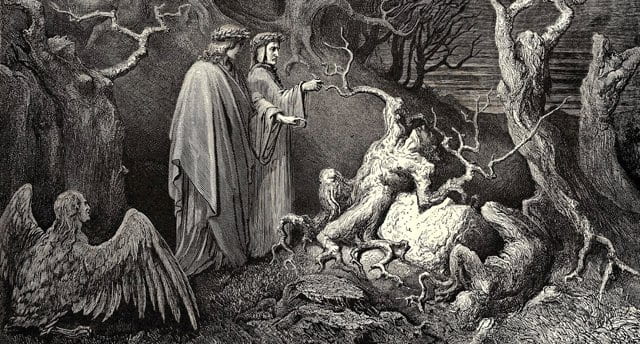
by calozada | Mar 13, 2022 | Art, Questions, Visions of Hell
The conception of hell as a frozen wasteland may seem surprising to people, as the general assumed temperature of hell is to be extremely hot. This basis is in fact proven in the Bible in several sections. In Revelations, hell is described as a “lake of fire.”...
by iaterry13 | Mar 8, 2022 | Art, Questions, Readings
“On his way up from the Piraeus outside the north wall, he noticed the bodies of some criminals lying on the ground, with the executioner standing by them. He wanted to go and look at them, but at the same time he was disgusted and tried to turn away. He struggled for...

by Merrin | Mar 6, 2022 | Art, Questions
In Chapter IV of The Confessions, Augustine introduces a story concerning his former student Alypius. After being dragged to the gladiator games, Alypius protests by covering his eyes, as to not bear witness to the violent event. Eventually, Alypius — “yielding to...

by Cassidy Medina | Feb 27, 2022 | Art, Questions, Readings
The pieces shown in the smart museum prompted us to think about the role of art in making us simultaneously want to turn away in disgust but also captures our attention as discussed with our readings of Sontag and Augustine. Specifically, the piece by Jacque...

by calozada | Feb 19, 2022 | Art, Questions, Theories
Note: Before reading, I just wanted to write that some of the images seen here in this two-part post are quite graphic and may cause emotional distress. I know the topic is already quite brutal and distressing, but I do not want to cause undue harm because my work is...

by calozada | Feb 19, 2022 | Art, Questions, Theories
Note: Before reading, I just wanted to write that some of the images seen here in this two-part post are quite graphic and may cause emotional distress. I know the topic is already quite brutal and distressing, but I do not want to cause undue harm because my work is...






